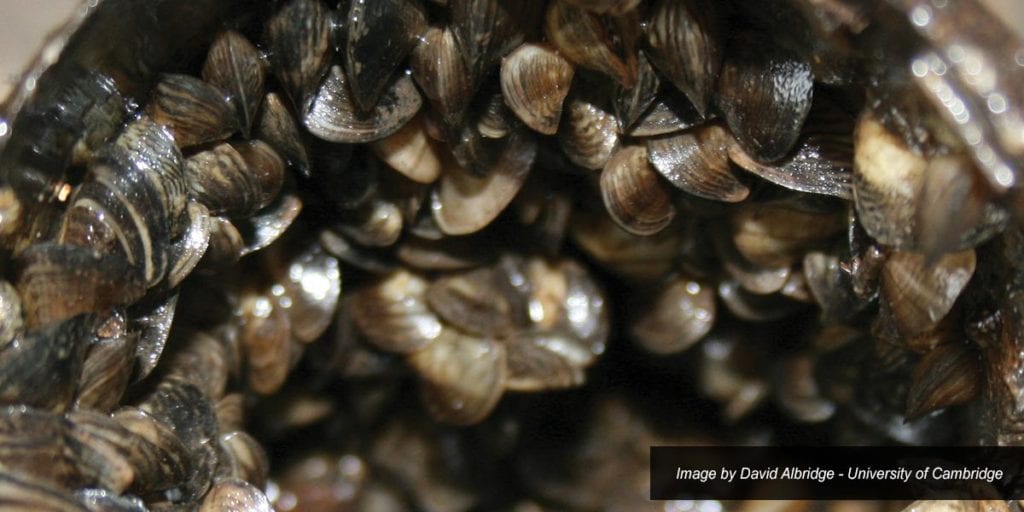Stop aquatic invaders musseling in

Ian Danby
Foreign molluscs, such as zebra mussels, pose a threat to the ecosystem of UK waterways. Ian Danby explains how shooters can help stop their spread.
Some introduced species can cause problems and threaten the survival of our native plants and animals too. It has been calculated that invasive non-native species such as molluscs cost the UK economy more than £1.8bn.
The best defence is to stop them arriving in the first place. However, if they do get here, detecting them quickly, stopping the spread and eradicating them (if possible) is the best course of action.
Many established invasive non-native species are familiar to shooters. Whether it be through biodiversity or conservation work, we are at the forefront of controlling them. This work includes controlling grey squirrel and mink as they negatively impact red squirrels and water voles respectively, as well as a range of other wildlife. Ruddy duck is another species that have been on our radar and any of us who come into contact with water could be unwittingly spreading other invasive non-native species – the invasive zebra mussels.
What are zebra mussels?
Zebra mussels have been in the UK since the 1800s. They spread through water courses and inadvertently through their larvae. The larvae gets caught on wet clothing or equipment and can be washed off to a new location.
Zebra mussels can alter the aquatic environment by forming massive populations and covering the beds of water courses and water bodies. In addition, they feed on phytoplankton in the water, competing with native animals that rely upon it.

What does that mean for shooting?
Molluscs can alter the food chain to an extent where it can no longer support native species. And, waterfowl are near the top of that food chain.
Considering already established non-native plant species like Australian stonecrop or water primrose now dominate flight ponds, it’s clear we must do everything possible to avoid helping these species spread.
Molluscs on the move
The invaders are coming! A similar invasive non-native species to the zebra mussel is the quagga mussel and it’s recently been recorded near Staines.
A Defra spokesperson said: “We are working with water companies and waterway users to reduce the risk of the quagga mussel spreading any further, and manage any impact it may have. We are working with the Environment Agency to explore options and they are carrying out further checks. Users of our waterways can help by checking their equipment and keeping it clean and dry.”
What steps can you take?
The advice from Defra is to follow the Check, Clean and Dry steps.
- CHECK you equipment and clothing for live organisms – particularly in areas that are damp or hard to inspect
- CLEAN and wash all equipment, footwear and clothing thoroughly.
- DRY all equipment and clothing – some species can live for many days in moist conditions.
It is basic common sense, especially if you know that these problem species are present in the area you go to.
For further information, visit the GB non-native species secretariat website. You can also download the Check, Clean and Dry poster in PDF here.
